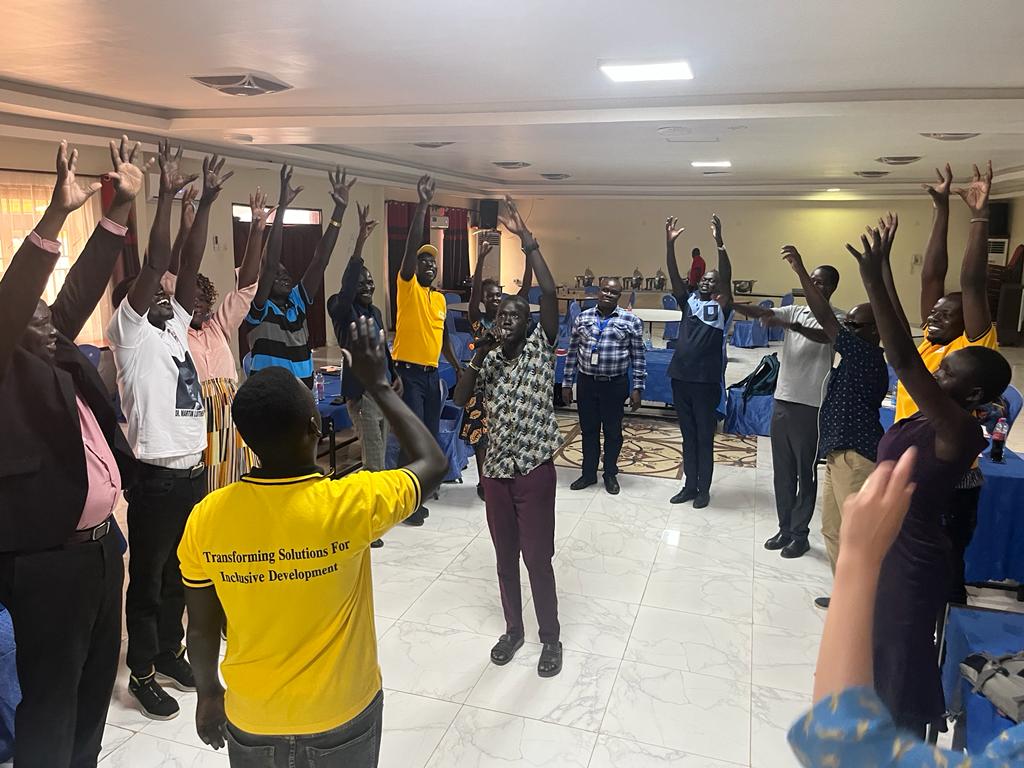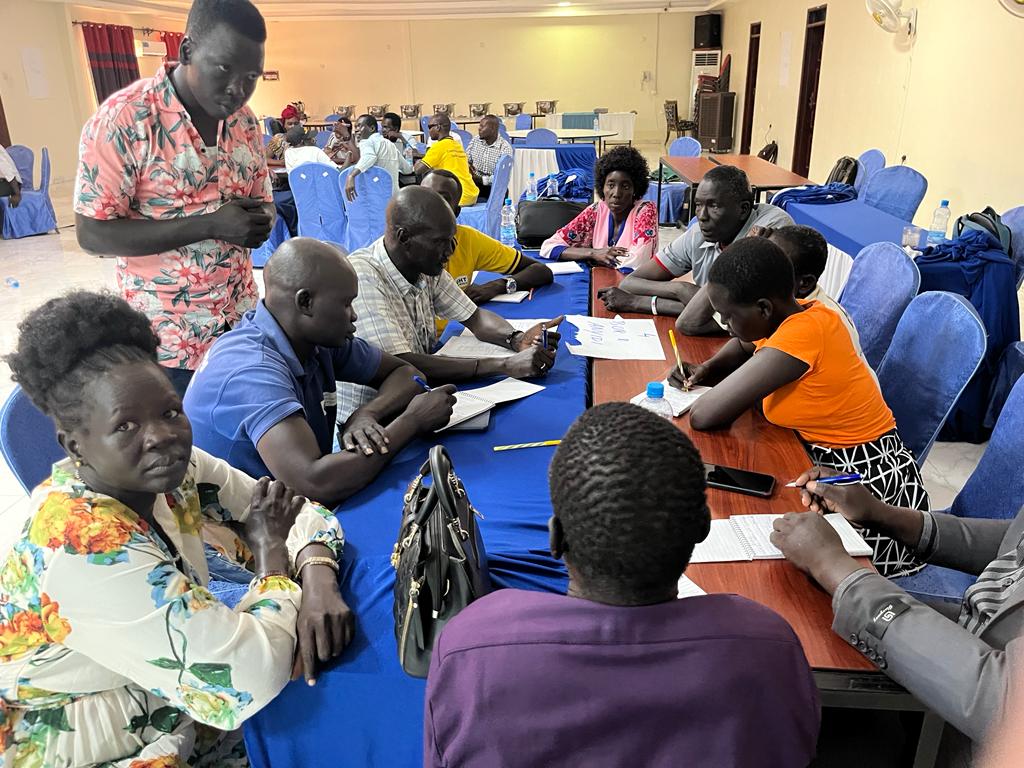The International Day of Persons with Disabilities on 3 December is an occasion to recognise and celebrate the contributions and rights of individuals with disabilities. It’s not just a day to help shed light on the challenges they face, but also highlight the progress being made toward disability inclusion worldwide. It serves as a reminder for policymakers and experts alike to think of equitable and inclusive societies for all.
Since 2021, the We Are Able! programme has worked with local governments and non-government organisations across Central Africa to promote disability inclusion in local governance and increase food security.
Now, as the programme enters the latter half of its five-year cycle, we spoke with Emmanuel Yanga, one of our local experts and co-trainers in South Sudan, to learn from the results and celebrate the progress made.

We Are Able! participants of South Sudan working in groups
The Local Inclusion Action Plan
Developed by co-trainers well-versed in inclusive governance, the Local Inclusion Action (LIA) plan is a disability-sensitive governance initiative within a local government’s policy framework. Importantly, it is crafted in collaboration with Organisations of Persons with Disabilities (OPDs) and Civil Society Organisations (CSOs) and actively involves individuals with disabilities in the decision-making processes, ensuring that their voices are heard, and their unique perspectives considered.
As Emmanuel tells us, the LIA co-creating approach is fully embraced by the public administrators and practitioners he works with in South Sudan. Together, they have leveraged the LIA approach to better understand and mitigate the barriers to inclusion that persons with disabilities face in their local communities.
Fostering Relationships that Ensure Inclusivity
The strength of the Local Inclusion Action approach lies in the cooperation of various actors who bring both different perspectives and capacities to the table. Public administrators, OPDs, and CSOs jointly develop, design, and implement agreed-upon policy actions – but their collaboration does not end there. Before policy actions are taken, they work together to assess existing gaps in local service delivery and often engage with other technical and political leaders to better understand existing challenges or help allocate resources needed to assist in disability inclusion. After policy actions are taken, they further engage in the policy review process.
This is often where Emmanuel comes in: “The group of local experts (co-trainers) have been instrumental in facilitating the periodic review of LIA [policy actions], and this practice contributes to the [learning] cycles of doing, learning, and adapting”.
Importantly, as Emmanuel points out, the co-trainers have further encouraged and facilitated meaningful citizen participation in governance by offering them a space to truly influence decision-making, namely through the establishment of an Inclusive Dialogue Platform:
“[Through] facilitated dialogue, people from diverse backgrounds – including marginalised groups – have a space to come together, express themselves, and participate in decision-making processes”.

We Are Able! participants of South Sudan working in groups
Public engagement has helped public authorities better understand the lived realities of persons with disabilities and better address service provision challenges by drawing from multiple sources of capacity and willpower.
“The engagement of OPDs, traditional, public and religious leaders as stakeholders in the process did encourage and create a sense of ownership among the actors, and they are now champions of their initiatives”.
Awareness Learning and Pooling Capacities Give Results
The progress made in South Sudan shows us that the practice of coordination and trust resulting from the LIA approach has truly progressed disability inclusion in local communities.
To exemplify this, Emmanuel shares the positive results brought on by active awareness learning and the pooling of capacities among the various actors involved. He tells us of the outcome of an inclusive education training involving local community leaders. Once the training was over, the leaders took it upon themselves to mobilise their resources to build accessibility ramps in three schools and formed an outreach committee to support the education of out-of-school children with disabilities. This action was made possible by the cooperation of church, tribal, woman, and youth leaders with education and public administrators.
We also see positive changes within local government. An awareness training on disability inclusion in Bor County led participating officials to appoint a legal representative for persons with disabilities. They further committed to more inclusive employment and began by hiring an experienced person with a physical impairment as an agricultural inspector. The officials embodied an attitude shift that strives to move past bias and acknowledge the contributions persons with disabilities make to the workforce and local governance.
The multifaceted impact of the LIA process resonates with increased inclusivity, economic empowerment, and positive societal shifts – highlighting the transformative potential of collaborative efforts in local governance.
The We Are Able! Programme
With roughly two years left in the programme’s life cycle, Emmanuel shares the commitment from trainers on-site to keep contributing to the capacity and knowledge exhibited by their local partners.
In a wider sense, by highlighting their work, we can raise awareness about the importance of disability inclusion and encourage others to follow suit in their communities.
Want to find out more? Go here to learn more about the programme.
